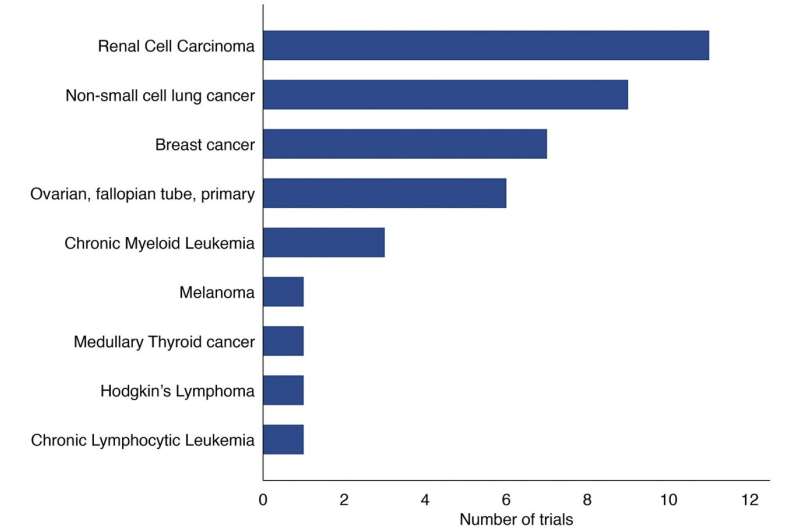This article has been reviewed according to Science X's editorial process and policies. Editors have highlighted the following attributes while ensuring the content's credibility:
fact-checked
trusted source
proofread
Study shows many expensive cancer drugs have unclear patient benefit

New cancer drugs are being launched rapidly before their long-term effectiveness for patients can be evaluated. Several years later, most of them still lack scientific evidence for increasing life expectancy or improving quality of life, a study at the University of Gothenburg has shown.
Cancer drugs are a dominant area in the pharmaceutical industry, constantly developing and launching new treatments. Cancer drugs are approved centrally by the European Medicines Agency (EMA) and are often subsequently launched in European countries after national reimbursement processes.
To reach patients sooner, it has become increasingly common for cancer drugs to be approved based on studies that show an effect on biomarkers, but without clear evidence that they extend life or improve patients' quality of life. A study by health economics researchers at the University of Gothenburg shows that there is still a lack of such evidence for many new cancer drugs, even several years after their launch.
Unclear effect on key outcomes
The study includes multi-year follow-up data for 22 cancer drug indications approved for reimbursement in Sweden during the last 10 years. The average follow-up time for these drug indications was 6.6 years. The results have been published in the journal Clinical Drug Investigation.
For seven of the 22 drug indications, at least one study clearly showed that the treatment either improved quality of life or increased life expectancy. For the other 15, randomized controlled trials failed to show any such effect, or there were no results from these trials. Only one of the drugs had scientific evidence of both increased life expectancy and improved quality of life for its indication.
"We have shown that the majority of the drugs launched with limited evidence still lack clear evidence of how they actually affect survival and quality of life in patients," says Gabriella Chauca Strand, a doctoral student at Sahlgrenska Academy at the University of Gothenburg, and the lead author of the scientific publication.
According to the researchers, the fact that cancer treatment is increasingly taking up limited resources within health systems means that further discussions are needed about which drugs should be approved for reimbursement.
"The lack of confirmatory evidence for important patient outcomes is problematic and creates uncertainty about how these drugs actually contribute to meaningful patient benefit, and ultimately how effectively resources are being used within health care."
More information: Gabriella Chauca Strand et al, Cancer Drugs Reimbursed with Limited Evidence on Overall Survival and Quality of Life: Do Follow-Up Studies Confirm Patient Benefits?, Clinical Drug Investigation (2023). DOI: 10.1007/s40261-023-01285-4




















